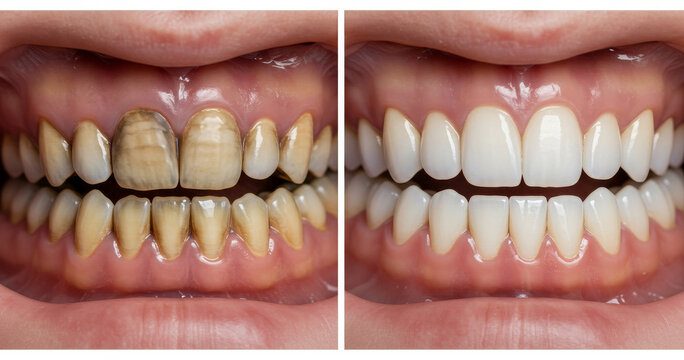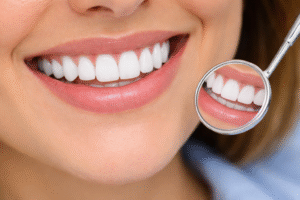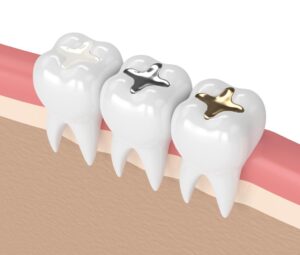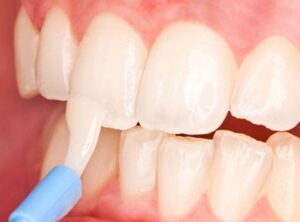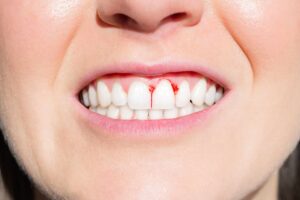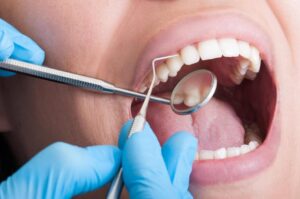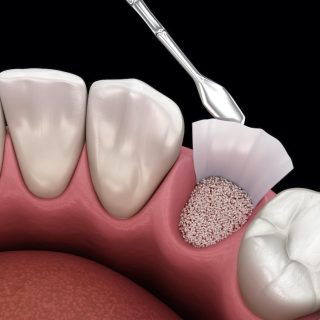Smoking exposes your teeth to a harmful mix of tobacco, nicotine, and chemicals that directly attack your mouth’s health. The cigarette effect on teeth goes far beyond surface stains; it weakens your gums, slows healing, causes bad breath, and increases the risk of serious conditions like tooth loss and oral cancer. Over time, smoking can silently erode both your oral health and overall well-being.
In this blog, we’ll explore the effects of tobacco on teeth and share some useful tips on what you can do to protect your smile.
Smoking and oral health: the damaging effect
The chemicals in cigarettes damage soft tissue, reduce blood flow in the gums, and weaken the immune system’s ability to fight infections. This leads to a higher risk of developing serious dental problems that often progress faster and become harder to treat in smokers than in non-smokers.
-
Smoking and Gum Disease (Periodontitis)
Gum disease is significantly more prevalent among smokers. Smoking can cause mild gum issues like gingivitis to progress rapidly into severe periodontal disease. Smoking weakens the immune system, making it harder for the body to defend infections in the gums. Additionally, research shows that smokers are twice as likely to experience gum disease compared to non-smokers.
-
Tobacco stained teeth
Nicotine and tar in cigarettes settle into the porous enamel of the teeth, causing visible discoloration. Early staining appears as a yellow tint, but over time, heavy smoking can turn teeth brown. Smoking can also discolor the tongue and dull the natural brightness of the smile. This staining effect is not just cosmetic; it can be a sign of deeper oral health issues caused by prolonged tobacco use.
-
Persistent Bad Breath (Halitosis)
Cigarette smoke leaves a strong odor on the breath, which combines with other oral problems to worsen bad breath. Smoking also causes dry mouth, reducing saliva flow that’s necessary to wash away food particles and bacteria. On top of that, smoking raises your chances of developing gum disease, which is another big cause of bad breath.
-
Delayed Healing After Dental Procedures
Smokers typically face longer recovery times after oral surgeries. This is largely due to reduced blood flow and lower oxygen levels in the bloodstream caused by smoking. In addition to this, smoking lowers the success rate of dental implants as it slows down the healing process and how the bone integrates with the implant.
Cigarette effect on teeth: complications related to smoking
-
Increased risk of oral infection
Smoking encourages the growth of bacteria that can damage your teeth and gums. It also weakens your immune system, making it harder to battle infections and reduces saliva production. This results in an increased risk of oral infections, including gum abscesses, thrush, and recurring inflammations that can damage surrounding tissues.
-
Tooth loss and bone deterioration
Smoking supports the buildup of bacteria, plaque, and tartar on the teeth and gums, all of which contribute to tooth decay and gum disease. Over time, this leads to cavities, the breakdown of supportive bone, and eventually tooth loss. The chemicals in tobacco slow down bone regeneration and weaken the structures that hold teeth in place. As a result, smokers are at a much greater risk of losing teeth and experiencing jawbone deterioration, which in turn can affect both function and facial structure.
-
Smoking and mouth cancer risk
Tobacco products contain chemicals that can alter DNA and trigger cancer. Smoking is one of the leading causes of mouth cancer, significantly increasing the risk of developing cancer in the lips, tongue, cheeks, gums, and throat. Continuous exposure to these harmful substances causes mutations in healthy cells, potentially leading to aggressive forms of oral cancer.
Common symptoms smokers should watch for
Smokers are more likely to develop dental issues, many of which show early warning signs that shouldn’t be ignored.
Warning signs of dental problems caused by smoking.
- Bleeding gums during brushing or flossing
- Swollen, red, or receding gums
- Persistent bad breath
- Tooth sensitivity or pain
- Loose or shifting teeth
- Stains on teeth or tongue
- White or red patches inside the mouth
- Sores or lumps that don’t heal
Treatment options for smoking-related dental problems
Dental problems caused by smoking can vary widely, from simple staining to serious conditions like advanced gum disease and even tooth loss. Thankfully, several treatment options are available to help restore oral health and function:
- Professional Dental Cleanings: Regular dental cleanings help remove plaque and tartar buildup, especially in early stages of gum disease.
- Antimicrobial Mouth Rinse: Specialized mouthwashes can help reduce bacterial growth and support gum healing.
- Antibiotics: These may be prescribed as oral medications or in the form of a localized gel to treat infections and inflammation.
- Bone Grafting: For patients with jawbone deterioration, grafting procedures can help rebuild lost bone and provide a foundation for future restorations.
- Restorative Dental Work: Treatments such as fillings, crowns, or bridges may be needed to restore teeth damaged by decay or structural weakness caused by smoking.
- Dental Implants and Dentures: When teeth are lost, options like implants or dentures can restore appearance and function.
- Teeth Whitening: Professional whitening treatments can reduce or eliminate discoloration caused by nicotine and tar buildup.
If you’ve stained teeth, you may want to explore professional whitening treatments to restore your smile’s brightness. You can check our teeth whitening price and find the option that suits your needs.
Preventive & daily care tips for smokers
While quitting smoking is the best way to protect oral health, smokers can still take important steps to reduce harm and maintain their dental hygiene:
-
Oral Hygiene Practices
Brush your teeth at least twice a day using fluoride toothpaste, floss daily to remove plaque between teeth, and use an antibacterial mouthwash to control bacteria and combat bad breath.
-
Diet and Hydration
Drink plenty of water to prevent dry mouth and rinse away harmful acids. Avoid sugary snacks and drinks that feed decay-causing bacteria. A balanced diet rich in vitamins A, C, and E helps support gum health, tissue repair, and overall immune function.
-
Don’t Miss Dental Checkups
Constant visits to the dentist are necessary for the early detection of gum disease, cavities, and oral cancer.
Practical tips to quit smoking
- Avoid Triggers: Avoid people and places where you are tempted to smoke.
- Keep Busy: Distract yourself with activities or tasks when cravings hit. Staying active helps reduce the urge.
- Use Nicotine Replacements: Consider gum or patches to ease cravings. Follow usage instructions to avoid overdependence.
- Remember Your Reasons: Keep your goals in mind; better health, cleaner teeth, or saving money to stay motivated.
Why regular dental visits matter
Regular dental checkups are essential for everyone, but especially for smokers who are more vulnerable to the cigarette effect on teeth. Early signs of gum disease, decay, and other complications can develop quietly and progress quickly. Regular check-ups allow your dentist to detect problems early and start successful treatment before they get worse. At Shenawy Dental Centers, we understand the specific challenges smokers face. Our experienced team is equipped to address all dental issues with personalized solutions that protect your oral health long term.
Frequently asked questions
-
Is vaping better for my health?
No. It is safer than smoking but still not safe. E-cigarettes contain nicotine and other chemicals that can hurt your heart, lungs, and mouth
-
Will my teeth get better if I stopped smoking?
Yes, quitting smoking improves oral health and lowers your risk of gum disease and tooth loss, even after years of smoking.



